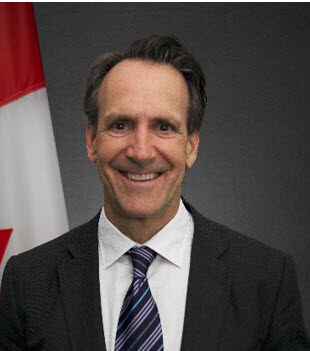
Bob Mackin
BC Hydro workers got whopping increases above inflation in their daily meal allowance rates and vehicle mileage rates at the start of the year, a move that is expected to cost the Crown corporation $2.2 million more a year.
A November 2022 briefing note for senior executives, obtained via freedom of information, recommended upping the daily maximum for breakfast, lunch and dinner by 41%, from $51 to $72, in reaction to employee feedback that BC Hydro has not kept up with the rise in food and gas prices. A BC Hydro spokesperson said the recommendation was approved and that meal allowance increase was the first in over a decade.

BC Hydro spokesman Dave Mix camping at Tofino (BC Hydro)
BC Hydro compared its existing rates with two universities (University of B.C. and Simon Fraser University), two Crown corporations (WorkSafeBC and ICBC) and unionized workers in the public service (B.C. General Employees’ Union). The WorkSafe and ICBC rates were censored, under a clause that protects third-party business information, but showed BCGEU-represented workers are eligible for $55.12 per day, SFU $75 per day and UBC $80 per day.
“We consider this to be a reasonable increase to address rising meal costs in recent years and the $72/day rate is similar to other meal per diem rates being provided by the B.C. public sector, which is an expectation from PSEC,” the briefing note said.
According to BC Stats, the province’s March consumer price index was 4.7% higher than a year earlier. Food (+7.8%) led the way. Energy, including gasoline, fell 5%, but transportation was 2.9% higher.
BC Hydro employees are allowed to seek reimbursement for use of their own vehicle while on company business. Mileage rates went up 11% from 55 cents per kilometre to 61 cents per kilometre for the first 5,000 driven in a year, then 55 cents/km over 5,000.
“At the time this was the maximum increase possible before it became a taxable benefit under [Canada Revenue Agency] guidelines,” said Susie Rieder of BC Hydro. “That’s why, when the automobile allowance rates were changed for 2023, we implemented a further, smaller increase to mileage on Feb. 1 to 68 c/km for the first 5,000 km per year, and 62 c for mileage over 5,000 km per year.”
The Public Sector Employers’ Council (PSEC) confirmed BC Hydro has the power to change its rates.
“PSEC does not approve our meal per diem and mileage rates but does expect them to be similar to other rates being provided in the B.C. public sector,” said the briefing note.
The briefing note said there are two reimbursement rates available: one for driving regular vehicles and the other for off-road driving, in 4x4s. The latter can only be claimed under specific circumstances and is not subject to specific CRA mileage rate limits.
The existing rates for regular vehicles were 55 c/km for the first 1,000 km per month and then 49 c/km for additional distance. The mileage rates proposed were the maximum allowed under CRA before employees are deemed to be receiving a taxable benefit.
“They are also similar to the B.C. government rates of 57 c/km in fiscal 2023 although government appears to only have one rate regardless of how many kilometres are travelled. The B.C. government rate is forecast to increase to 61 c/km in fiscal 2024 based on the collective agreement B.C. government signed with BCGEU, but which would be above CRA stated limits (for those travelling more than 5,000 km per year).”
Specific mileage rates are part of the MoveUp collective agreement, but not in the IBEW contract. Mileage rate increases do not impact the bargaining mandate from PSEC.
Specific mileage rates are included in the MoveUP collective agreement, but not in the IBEW collective agreement. Changes to mileage rates do not impact BC Hydro’s bargaining mandate from PSEC.
The briefing note proposed reviewing per diem meal rates every two to three years and mileage rates annually, with the intention of aligning to the CRA limit unless significantly higher than the B.C. government rate.
Support theBreaker.news for as low as $2 a month on Patreon. Find out how. Click here.











